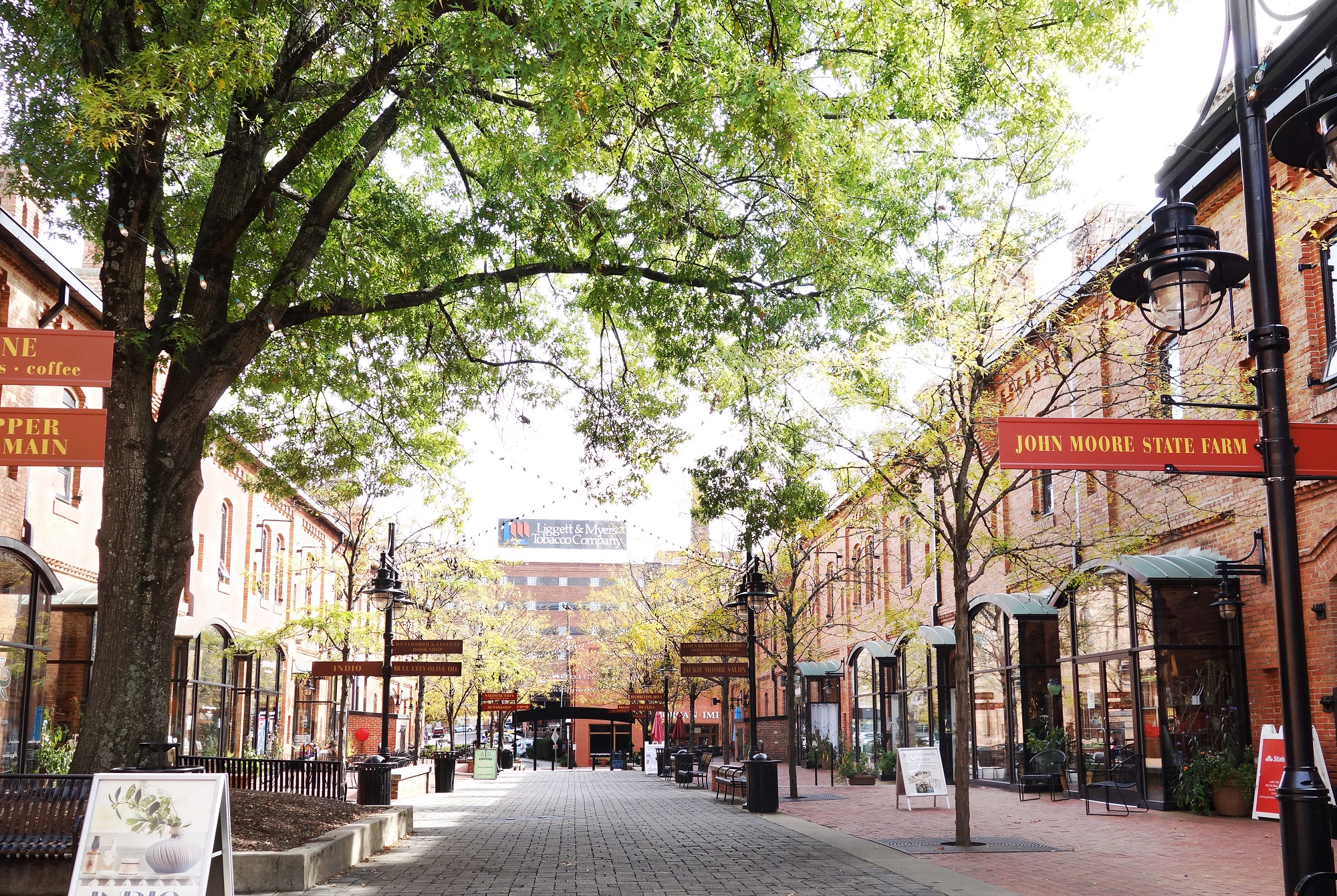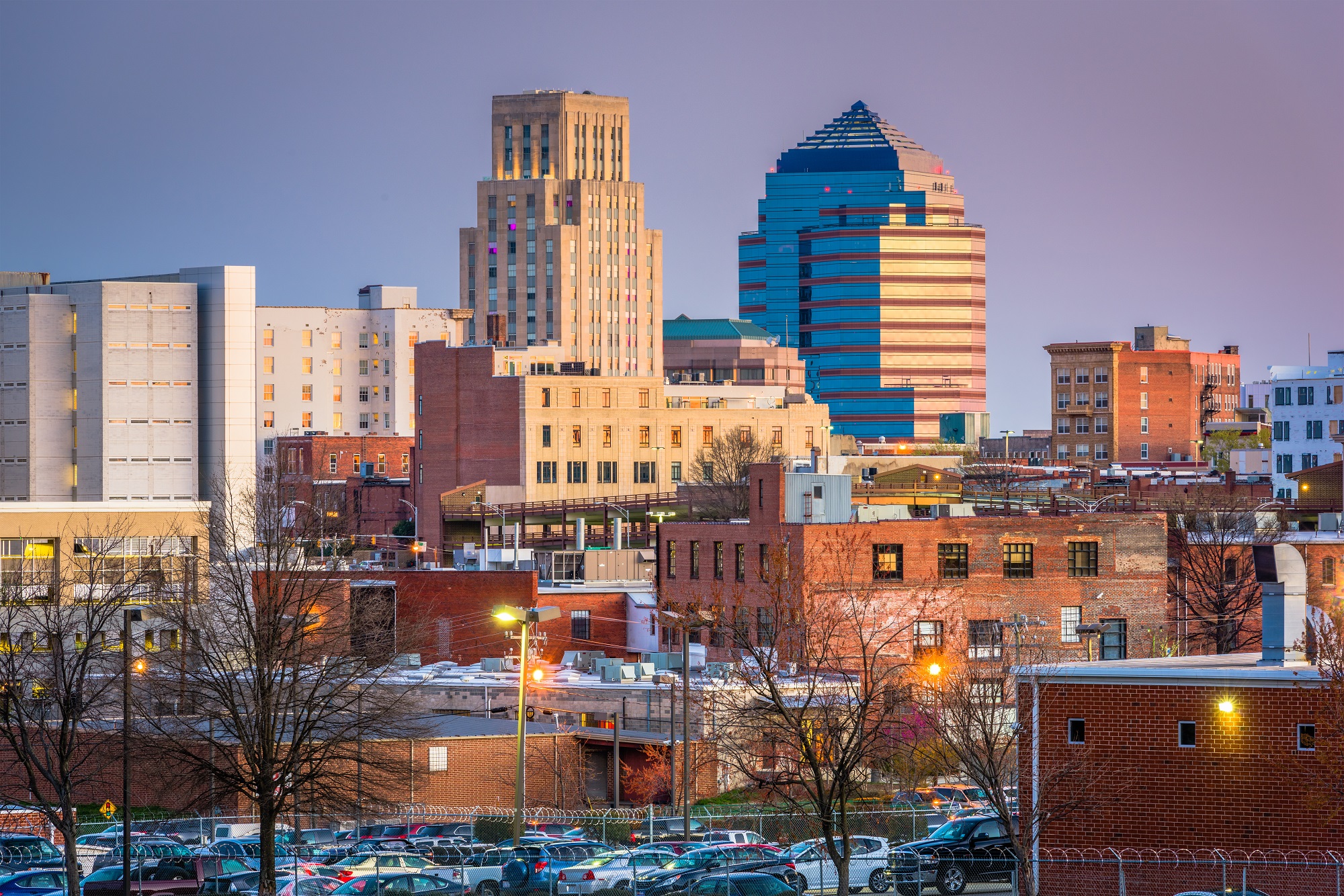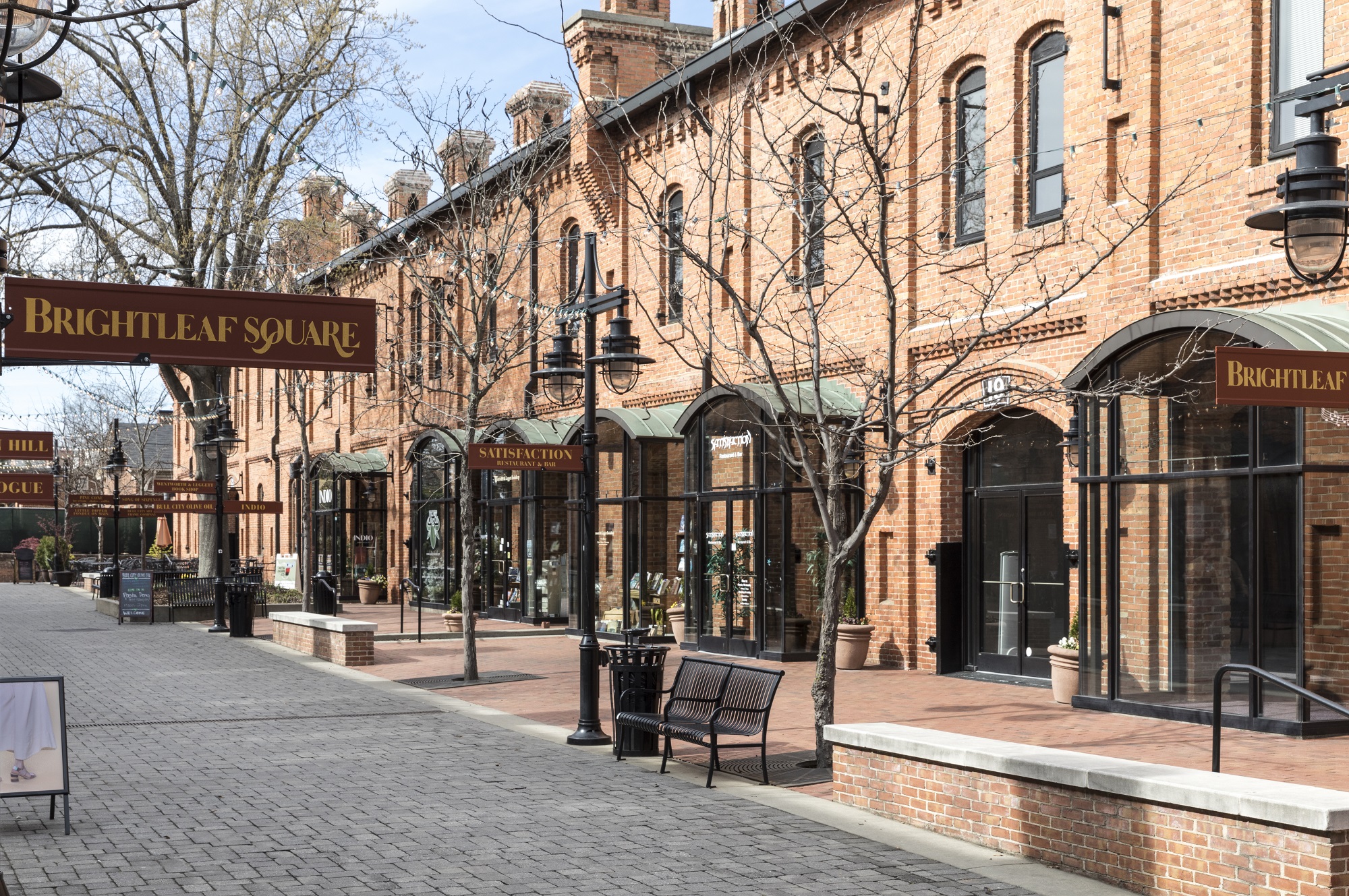
Moving To North Carolina: 10 Pros and Cons
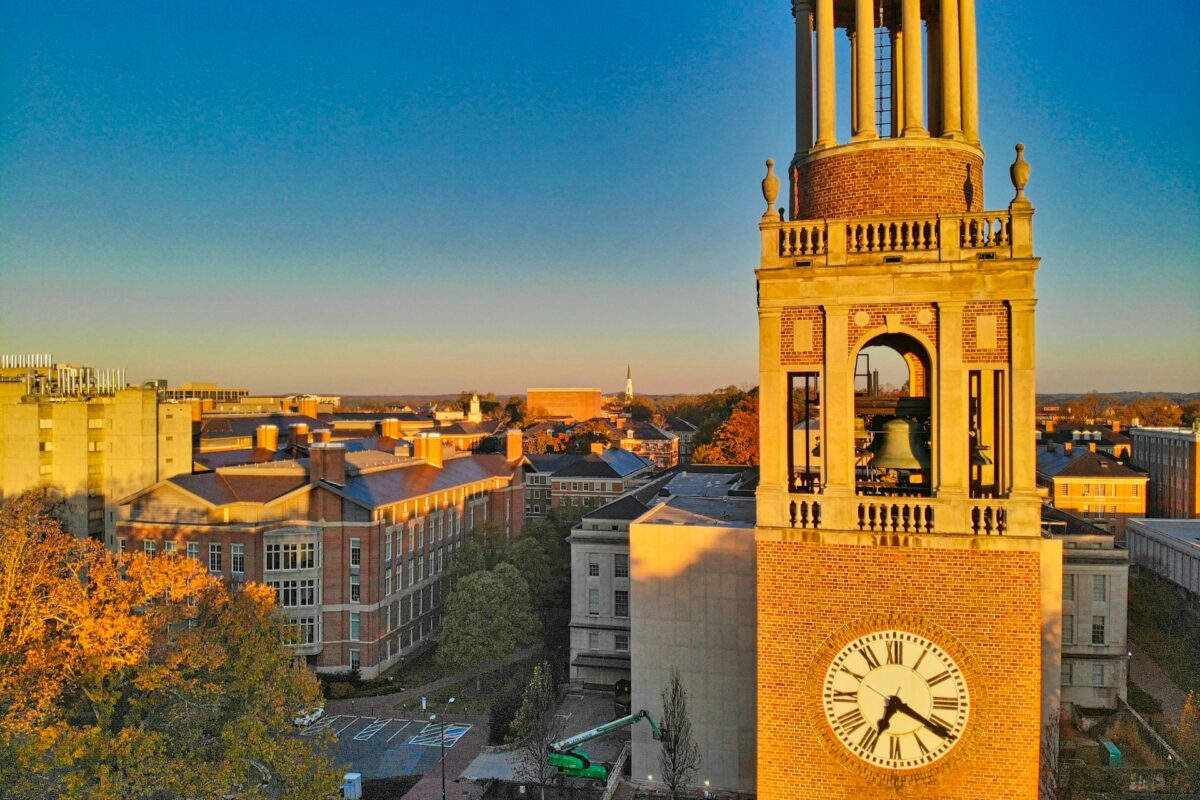
If you’re thinking about moving to North Carolina, Landing has you covered. Here’s everything you need to know, from barbecue to the housing market.
When it comes to travel and relocation destinations, North Carolina flies under the radar. But with the mysterious Appalachian Mountains, untamed beauty of the Outer Banks, and relaxed mid-size cities, there are dozens of compelling reasons to call this state home.
As you peel back the layers of this Southern gem, you’ll quickly discover that North Carolina has the perfect balance of natural landscapes and quaint, community-based urban areas. Here, traditional Southern charm meets a burgeoning tech industry and up-and-coming culinary scene that’ll leave you full as a tick.
If you’re considering moving to North Carolina, grab a tall glass of sweet tea and a notepad. Here are the pros, cons, and need-to-know details of living in North Carolina.
Is North Carolina a Good Place to Live?
North Carolina is a great place to live, and its growing population would agree. Since 2020, it has welcomed an average of 99,000 new residents each year, making it the third fastest-growing state by population in the United States. That’s like adding another Asheville annually.
So, why move to North Carolina? The cost of living in Raleigh, Asheville, and Charlotte falls a few percentage points below the national average. Even in its biggest cities, North Carolina’s more affordable than most states.
But it isn’t all about savings. The state boasts an enviable mix of bustling cities full of job opportunities and natural landscapes. Everyone from digital nomads to new grads will find growing tech, research, and innovation hubs. Plus, self-starters will love the small business ecosystem, which has a strong presence of women and minority-owned businesses. And on the weekends, you can hike the Blue Ridge Mountains, explore fun things to do in Durham or Charlotte, or discover hidden beaches in the Outer Banks’ barrier islands.
Rapid growth also means growing pains. North Carolina has low Walk Scores in pretty much every city, and the poor public transportation systems don’t help. But if you can deal with congested city centers and a growing housing crisis, you’re ready to find the best place to live in North Carolina.
Things To Know Before Moving to North Carolina: 10 Pros and Cons
Before you pack your bags, consider 10 pros and cons of living in North Carolina.
5 Pros of Living in North Carolina
Southern charm. Views of the Appalachian Mountains. A growing food scene. North Carolinians have a lot to be proud of.
1. There’s a Lower Cost of Living

You can generally expect affordable groceries, utilities, and transportation. Although prices vary from place to place, Chapel Hill is the only North Carolina city with costs above the national average.
If you want to enjoy the tech and academic hubs within the infamous research triangle — named for the proximity of Duke University, the University of North Carolina at Chapel Hill, and North Carolina State University — you can find a lower cost of living in Durham and Raleigh.
2. The Lifestyle Is Laid Back

In North Carolina, there’s always time for a backyard barbecue or a glass of sweet tea on the porch. Even in larger cities like Charlotte, Raleigh-Durham, and Greensboro, life moves at a slower pace. If you’re looking for a better work-life balance, you’ll find strong job markets in larger cities with an emphasis on community over non-stop hustle and bustle.
3. The Nature Is One-of-a-Kind

Just a short drive out of Asheville is Mount Mitchell, a high peak along the Great Smoky Mountains section of the Appalachian Mountains. If you’re looking for more, Western North Carolina is covered in mountains — making it a great place to hike, mountain climb, or explore with a 4×4.
For water enthusiasts, there are plenty of opportunities to paddle and fish in rivers, sea, or the Abermarle Sound. And if you want to lounge around a quiet beach near Wilmington or Myrtle Beach, there’s a reclining chair with your name on it.
4. The Food Is Amazing

North Carolina’s varied landscapes aren’t just for the outdoorsy. They also create diverse agriculture and livestock that shine through regional cuisine. Whether you join the East-West barbecue feud or try out celebrated restaurants in Asheville, Durham, and Fayetteville, foodies can always find a good meal. Plus, year-round farmer’s markets and food festivals let you practice Southern hospitality in your own kitchen.
5. The Economy Is Thriving

Multinationals like Apple, Amazon, and Bosch. Thriving research institutes like Duke University and North Carolina State in Raleigh-Durham. A growing financial sector in Charlotte. North Carolina has one of the United States’ most competitive business sectors, and the economy and job market are thriving as a result.

5 Cons of Living in North Carolina
Whether you’re moving to Raleigh or Winston-Salem, you’re not alone — and that’s sometimes a bad thing. North Carolina’s rapid growth has put pressure on state infrastructure like public transportation and law enforcement. Here are five other downsides to consider:
1. Public Transportation Is Limited

Public transportation options are limited across North Carolina, especially once you get outside of larger cities. Most Carolinians opt for cars, which causes congestion as the state population continues to balloon. Expect lots of time in traffic, which can eat away at your gas budget and free time.
2. Healthcare Is Expensive

Although North Carolina falls below the national average on most living costs, healthcare is the big exception. As of 2024, the state ranks as the most expensive state for healthcare in the U.S. Annual premiums for family health insurance coverage through an employer costs $7,180 annually, the second highest in the nation.
3. The Crime Rate Is Growing

North Carolina has become home to a high crime rate since 2020. In 2021, there was a 75% increase in Class A-E felonies, including violent crimes like aggravated assault. Although the crime rate began to dip in 2022, it hasn’t returned to pre-2020 levels.
4. The Weather’s Extreme

North Carolina is serious about showing off all four seasons. In fact, scientists claim that the state experiences 12 distinct seasons. Expect hot, humid summers and cold, snowy winters.
The diverse geography can also make weather patterns unpredictable. You might wake up to clear mornings that are quickly interrupted by big thunderstorms. Plus, natural disasters like hurricanes, floods, and tornadoes can add stress (and high insurance costs) to North Carolina living.
5. Rural Economies Are Left Behind
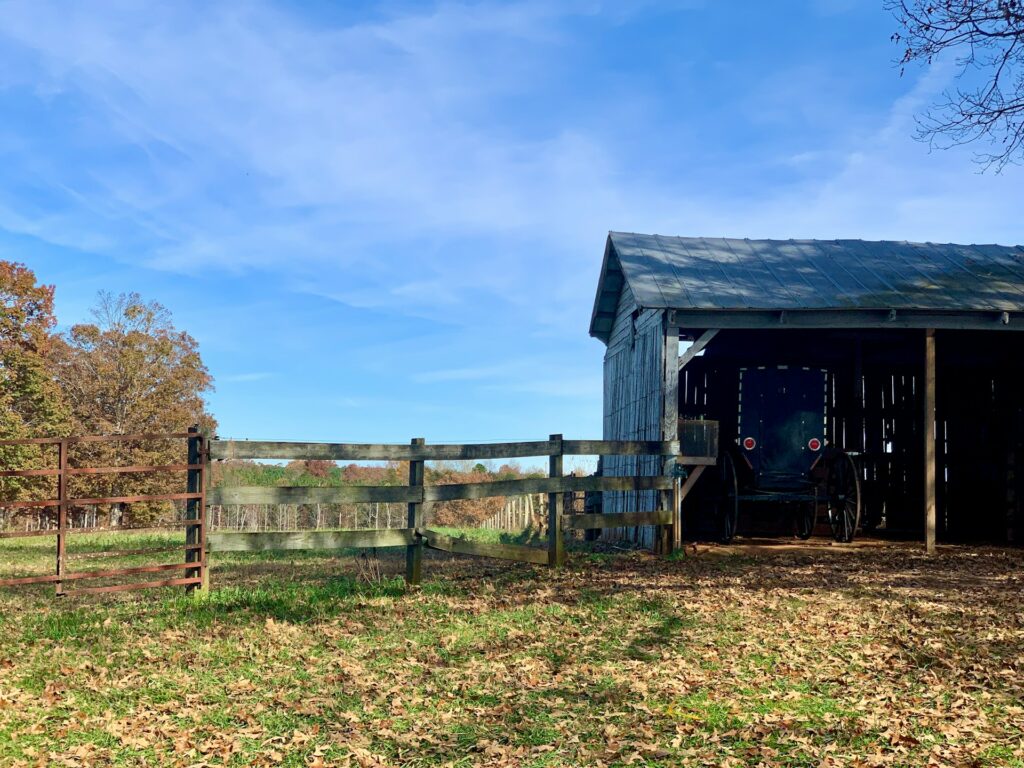
Moving to Durham, Raleigh, or Chapel Hill offers plenty of opportunities for career development. But living a quiet life in rural North Carolina can be challenging. Rural towns struggle with endemic poverty, poor infrastructure, and underdeveloped job markets.
Should I Move to North Carolina? 6 More FAQS
If you’re on the fence about calling North Carolina home, here are six frequently asked questions:
1. Which City Is the Safest in North Carolina?
Concord ranks the highest in the state for safety, according to a 2024 Moneygeek study of cities with a population above 100,000 residents. A separate study of small cities identified the Raleigh suburb of Fuquay-Varina as the safest town.
2. Is North Carolina a Good Place To Retire?
Yes, North Carolina is a good place to retire. Its affordable cost of living and low state income taxes make it an ideal place to live your golden years. And with no estate taxes, you can pass your wealth on to your family with little worries.
3. What Are the Main Risks of Living in North Carolina?
Natural disasters are a real concern for North Carolinians. The low-lying lands along the Atlantic Coast are prone to hurricanes and flooding. The state also averages 26 tornadoes a year, and severe high-wind thunderstorms do serious property damage.
4. What Are the Main Industries in North Carolina?
North Carolina is a banking and finance giant. Of the 52 banks licensed to operate in the U.S., 24 have headquarters in North Carolina, particularly in Charlotte. Information and biotechnology have been important industries since the construction of the Research Triangle Park in the 1950s, fueled by universities in Raleigh, Durham, and Chapel Hill.
5. What’s the Housing Market Like?
As of early 2024, the average North Carolina home cost $322,000 compared to the national average of $348,000, according to data from Zillow. The median rent for a two-bedroom apartment is $1,495, which is 21% below the national average.
6. What’s With the Barbecue Rivalry?
Barbecue is a hot topic no matter where you are in the South. Everyone will tell you that their barbecue is the only barbecue — with a dose of Southern charm, of course. North Carolina barbecue tradition is split between vinegar-based Eastern barbecue and sweet Lexington-style barbecue in the West. Part of Carolina living is picking the “right” side. But the real secret is that they’re both delicious.
Get Ready for Real Southern Hospitality
Beaches, barbecues, and a booming economy? Get ready to pack your bags and catch a flight to North Carolina.
If you’re worried about the housing market, Landing has your back. This platform will help you find the perfect home base with a fully furnished apartment with a flexible lease. Find Landing in cities across North Carolina, including Charlotte, Raleigh, and Greensboro. Become a Landing member today.


